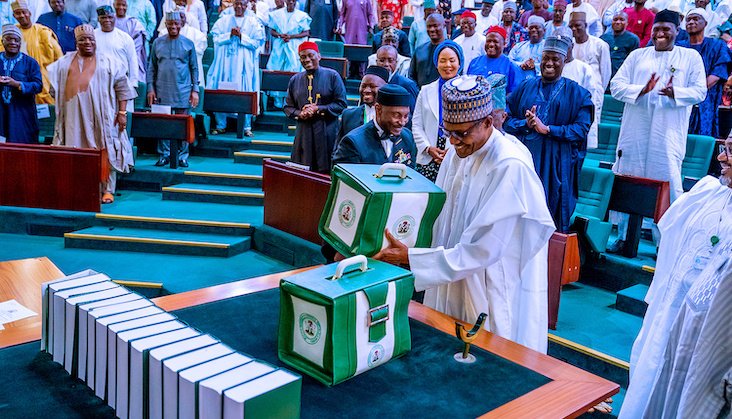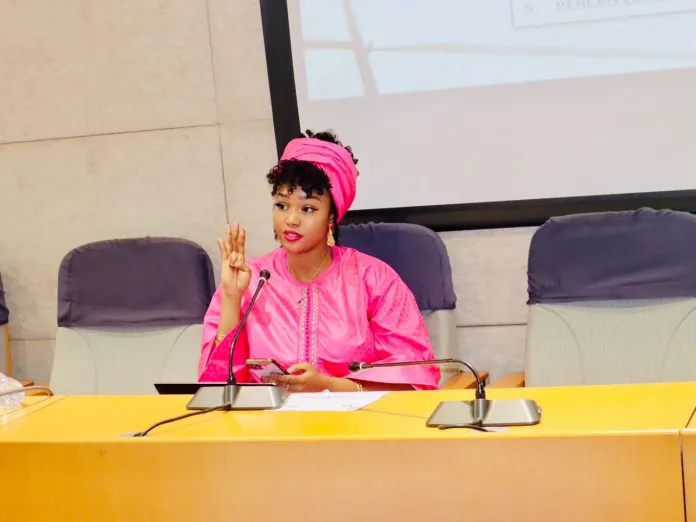The record 20.5 trillion Naira (or $47.3 billion) proposed expenditure by the Federal Government to run the economy in 2023 reflects the huge needs that exist in critical sectors of the economy. The proposed budget, which is 19% higher than the 2022 budget is expected to take effect from January 2023 to address economic growth, fiscal sustainability, and security.
It must be noted however that the overall spending proposal of N20.51 trillion reduces to a non-debt spending proposal ofN14.21 trillion once you deduct the proposed N6.3 trillion interest payments from the overall the spending plan. So, we do not have a N20.51 trillion spending plan on the table. We only have a N14.21 trillion spending plan.
It must also be observed that the proposed revenue of N9.73 trillion does not reflect our peak revenue performance of N6trillion in 2021. It is unlikely that we are going to get that N6 trillion in 2022, as we reported only 1.6 trillion in the first four months. How we are projecting N9.73 trillion revenue in 2023 is therefore a mystery. Even if we are lucky enough to generate the N9.73 trillion, we must also discount the N6.3 trillion projected interest payments out of it to leave us with a N3.43 trillion net revenue against the N14.21 trillion non-debt spending. This explains why the President is proposing a deficit of N10.78 trillion.
We are of the view that while nothing is wrong with the N10.78 trillion deficit, everything is wrong with the plan to issue N10.57 trillion (N8.8 trillion in new commercial loans and N1.77 trillion drawdown on bilateral and multilateral loans) new loans to finance the deficit, at a time that we are already placed on the watchlists of some of our foreign bondholders, and the world is still trying to process our president’s well-publicized call for debt cancelation at the last United Nations General Assembly.
It is the exclusive use of debt to finance deficits that got us into the situation where we cannot keep the revenue we are earning today, as we use the bulk of our revenue to settle interest payments, and it is increasingly not enough to cover the interest payments. In the 2022 year-to-April, the interest payments were more than the revenue, and it is most unlikely that the revenue will be more than interest payments in in the full-year 2022 or even in 2023.
It is comforting that the 2023 budget is still at the proposal stage. It behooves all well-meaning stakeholders to make constructive inputs to the Presidency and the National Assembly now. Can we consider more efficient alternatives to new borrowings? Can we issue equity to finance the deficit instead of using debt? Can we break from the path in which the Federal Government only approaches the debt markets at home and abroad and never approaches the equity market at home or abroad? Investors invest in debt. But they also invest in equity.
Our approach should not be to continue issuing only debt, especially with the increasingly unbearable burden of interest payments that exposes our fiscal vulnerably. Massive equity financing is the choice we should all urge the Federal Government to consider now. Nigeria should henceforth use equity financing as an exclusive way of funding budget deficits. If we embrace equity financing, we do not have to make huge interest payments, and we can use some of the proceeds of our equity issuance to pay some of down debt, to make the fiscal situation more sustainable and rekindle much-needed confidence in our economic and fiscal resilience.
It is not too late to use equity to fund the 2023 deficit proposal. The current administration should be encouraged to take advantage of the equity choice to bequeath a legacy that the incoming administration can build upon as we find our way back to the path of fiscal sustainability as a nation.
We commend the early transmission, consideration and signing of the federal budgets in recent times. Just like in 2022, the Federal Government transmitted the 2022 budget to the national Assembly on 7th of October 2021. The 2022 budget, titled “Budget of Economic Growth and Sustainability” valued at N17.126 trillion, was transmitted to the President by the National Assembly, on Friday, December 24, 2021. We expect to see an earlier transmission by the National Assembly and signing into law earlier than last year.
It is commendable to note the strategic objective of the expenditure policy which focuses on macroeconomic stability, human development, food security, improved business environment, energy sufficiency, improving transport infrastructure, and promoting industrialization by focusing on Small and Medium Scale Enterprises.
Beyond the figures and policy statements contained in the 2023 Federal Government budget, the Chamber wishes to highlight some recommendations for implementation:
We must immediately block revenue leakages by curbing oil theft, pipeline vandalization, and trimming excessive fuel,power, gas, and forex subsidies, as well as massive tax and duty waivers to lift revenue to N20 to N30 trillion thresholds from thepresent N6 to N10 trillion thresholds.








